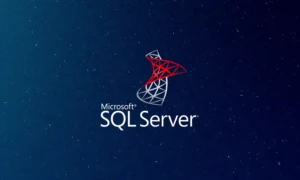The Middle East has emerged as a dynamic hub for technological innovation, and blockchain technology is no exception. With its potential to revolutionize various sectors, including finance, healthcare, and government services, blockchain has garnered significant attention in the region. In this article, we delve into the latest developments and trends in blockchain across the Middle East.
Blockchain Adoption in the Middle East
The adoption of blockchain technology in the Middle East is gaining momentum, driven by a combination of government initiatives, corporate investments, and entrepreneurial endeavors. Countries like the United Arab Emirates (UAE), Saudi Arabia, and Bahrain have been at the forefront of integrating blockchain into their national agendas.
Government Initiatives
Governments in the Middle East are actively exploring the potential of blockchain to enhance efficiency, Blockchain News Middle East transparency, and security in various sectors. The UAE, for instance, launched the Emirates Blockchain Strategy 2021, aiming to capitalize on blockchain technology across different government services, including healthcare, education, and transportation.
Similarly, Saudi Arabia unveiled its Vision 2030, which emphasizes the adoption of emerging technologies like blockchain to diversify the economy and drive innovation. The Saudi Arabian Monetary Authority (SAMA) has been exploring blockchain applications in the financial sector, particularly in areas such as cross-border payments and digital identity verification.
Corporate Investments
Corporate entities in the Middle East are increasingly investing in blockchain initiatives, recognizing the transformative potential of the technology. From financial institutions to logistics companies, organizations across various sectors are exploring blockchain solutions to streamline operations and enhance trust among stakeholders.
For example, Dubai-based Emirates NBD, one of the largest banking groups in the Middle East, has been actively involved in blockchain projects, including trade finance and supply chain management. Similarly, Aramex, a leading logistics and transportation company headquartered in the UAE, has partnered with blockchain startups to improve the efficiency and transparency of its operations.
Entrepreneurial Ecosystem
The Middle East boasts a vibrant entrepreneurial ecosystem, with startups driving innovation in the blockchain space. Dubai, in particular, has emerged as a hotspot for blockchain startups, attracting talent and investment from around the world. These startups are leveraging blockchain technology to address various challenges and create new opportunities across sectors.
One notable example is Vezeeta, a Cairo-based healthcare startup that utilizes blockchain to securely manage patient data and streamline medical processes. Another is ArabianChain, a UAE-based blockchain platform that offers solutions for smart contracts, digital identity, and decentralized applications (DApps).
Challenges and Opportunities
While the Middle East presents significant opportunities for blockchain innovation, it also faces certain challenges. Regulatory uncertainty, cybersecurity concerns, and the need for talent are among the key challenges hindering the widespread adoption of blockchain technology in the region. Blockchain News Middle East However, governments, corporates, and startups are actively collaborating to address these challenges and unlock the full potential of blockchain.
Conclusion
Blockchain technology is poised to reshape the Middle East’s economic and social landscape, driving innovation, transparency, and efficiency across various sectors. With government support, corporate investment, and entrepreneurial initiatives, the region is well-positioned to harness the transformative power of blockchain and emerge as a global leader in blockchain innovation.
As developments in blockchain continue to unfold in the Middle East, stakeholders must collaborate, innovate, and adapt to realize the full potential of this groundbreaking technology.



















